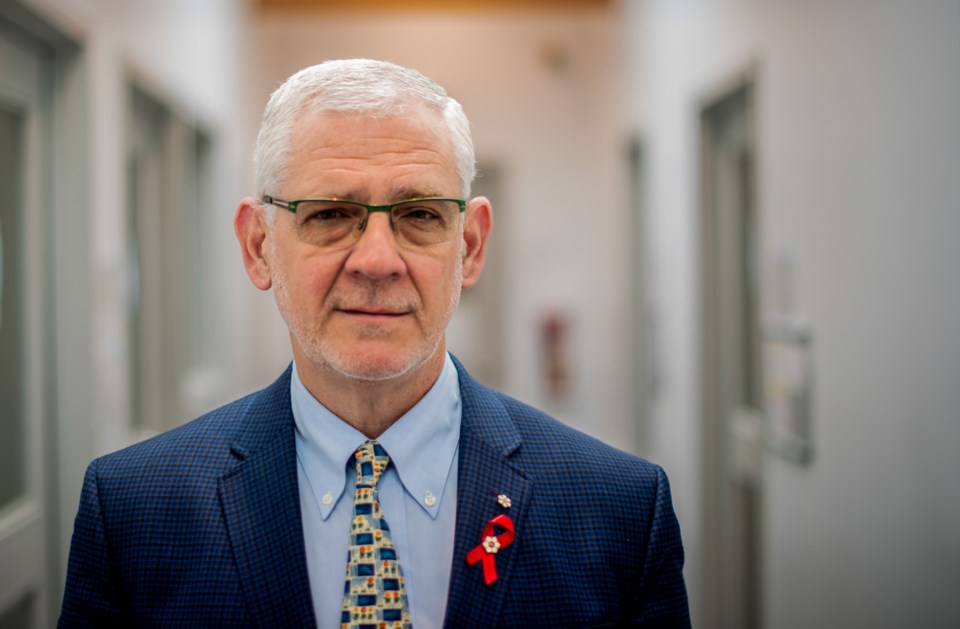The executive director of the BC Centre for Excellence in HIV/AIDS is calling on governments across the country and abroad to implement a comprehensive strategy to reduce deaths and infections after new research identified solutions towards the goal of an HIV-free generation.
Dr. Julio Montaner’s call comes after research published in the Lancet HIV journal shows that providing antiretroviral treatment to all people living with HIV — and preventive treatment to individuals at high-risk of contracting HIV — reduces deaths and new infections by more than 90 per cent.
The two-pronged made-in-B.C. approach combines what Montaner refers to as treatment as a prevention strategy, or TasP, coupled with pre-exposure prophylaxis, or PrEP.
“Our results confirm that adding targeted PrEP to TasP is a critical component of an effective HIV prevention strategy,” Montaner said in a news release.
“With that in mind, it is inexcusable that we are still seeing rising rates of new HIV infections in Canada. We therefore call on jurisdictions across the country and abroad to implement TasP plus targeted PrEP to optimize and accelerate the control of HIV/AIDS, and thereby reach the goal of an HIV-free generation.”
The BC Centre study looked at the impact of three milestones in the fight against HIV: the introduction of highly effective antiretroviral therapy (ART) in 1996, TasP in 2010 and PrEP in 2018.
ART suppresses the amount of HIV in biological fluids, such as semen or blood, to undetectable levels. As a result, people living with HIV are no longer infectious and can enjoy a near normal lifespan, free of AIDS.
TasP expands access to free ART to all people immediately after an HIV diagnosis. PrEP refers to the use of two antiretroviral drugs taken daily to prevent HIV infections among individuals at high risk of contracting HIV.
Canada only G7 country with rising HIV/AIDS rate
The study results showed free access to TasP for all B.C. residents living with HIV coupled with free access to highly targeted PrEP for residents at high-risk of contracting HIV reduced HIV/AIDS-related mortality by 95 per cent and HIV new infections by 91 per cent. Those results occurred between 1996 and 2022.
Additionally, the study evaluated the relative contributions of ART, TasP and PrEP on HIV infections in B.C. For every 100 people living with HIV actively on ART under the provincewide TasP strategy, the estimated HIV incidence rate decreased by 2.5 per cent.
And for every increase of 100 high-risk individuals on PrEP, the estimated HIV incidence rate fell by 1.7 per cent. Researchers said the TasP plus targeted PrEP strategy saves money.
“Targeting PrEP to individuals at high-risk optimizes the cost-effectiveness of the strategy,” the release said. “Results benefit from the fact the study was conducted in B.C., where universal health care is available to residents and covers ART, PrEP, laboratory monitoring, and medical services.”
Thus, researchers concluded, results are not influenced by potential variables related to the cost of the services.
The most recent Government of Canada data available shows the number of new HIV diagnoses in Canada rose 24.9 per cent in 2022 over 2021. B.C.’s rate of new HIV diagnosis is the lowest among Canada’s six largest provinces, by almost 40 per cent.
Canada is the only G7 country with a rising HIV/AIDS rate.



